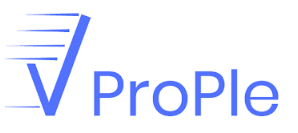This website use cookies to help you have a superior and more relevant browsing experience on the website.
Archives
Virtual Interviews vs. Traditional Interviews
The job market today is quite fast-paced. After the pandemic, the evaluation of candidates in job interviews has two approaches- traditional interviews and virtual interviews. While both approaches have their benefits, companies nowadays are mostly seen shifting their process to a virtual one. When we talk about the traditional approach, it is the process of […]
read moreWhy it is time for Interview Management System
In the year 2024, there has been a tremendous shift in hiring management, and it is becoming very crucial for companies to formulate a robust Interview Management System to streamline the hiring process and effective evaluation of the candidate. Online interview service platforms have become an extremely integral part of the hiring process, as they […]
read moreHR Trends In 2024 That’ll Change The Job Market
The work landscape is on the brink of significant shifts in 2024, influenced by economic dynamics, the rise of new technologies, and the ever-changing priorities of the modern workplace. In 2024, the Indian job market is anticipated to maintain its upward momentum, with forecasts pointing towards ongoing expansions in hiring. Fueled by rapid industry growth […]
read more


